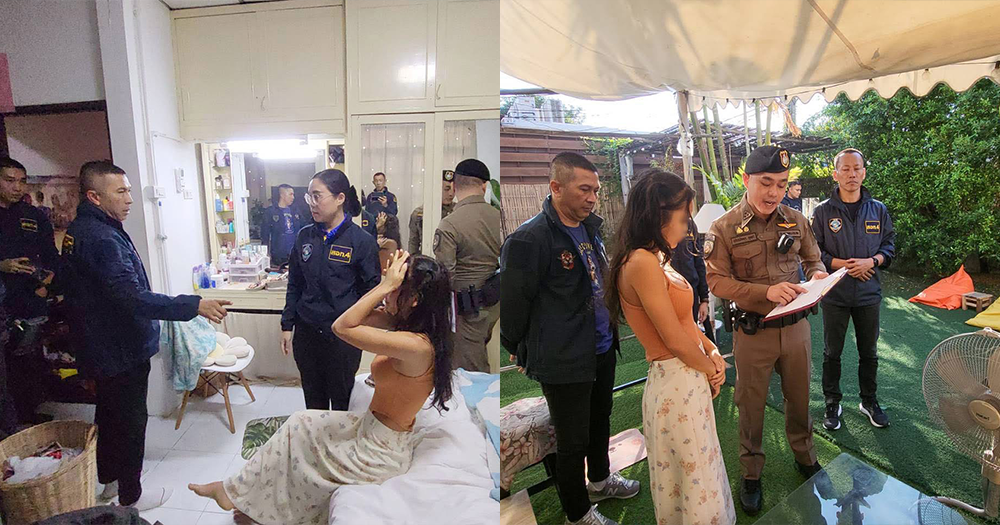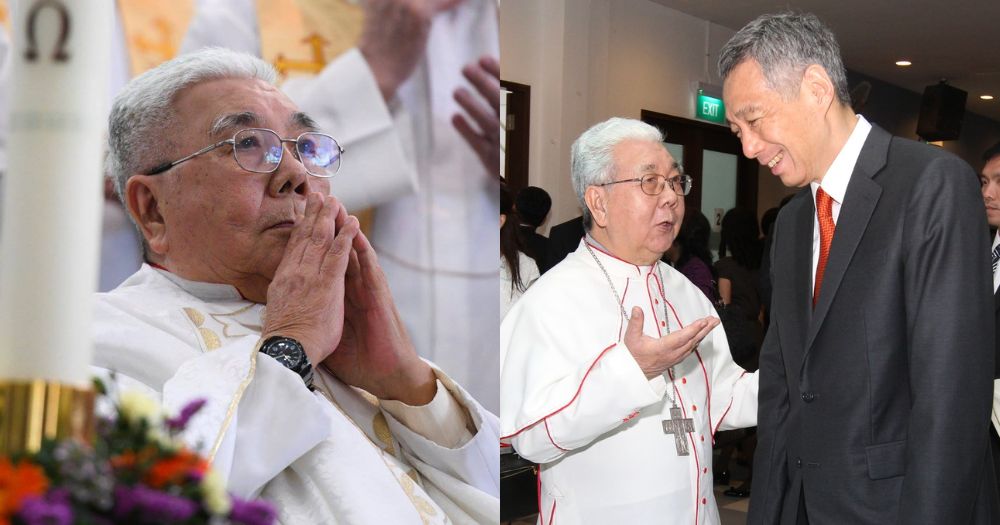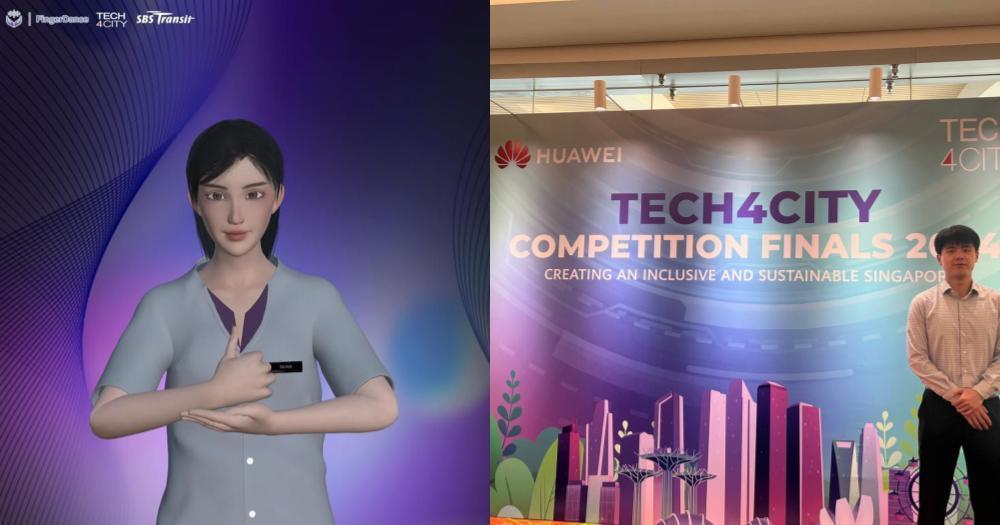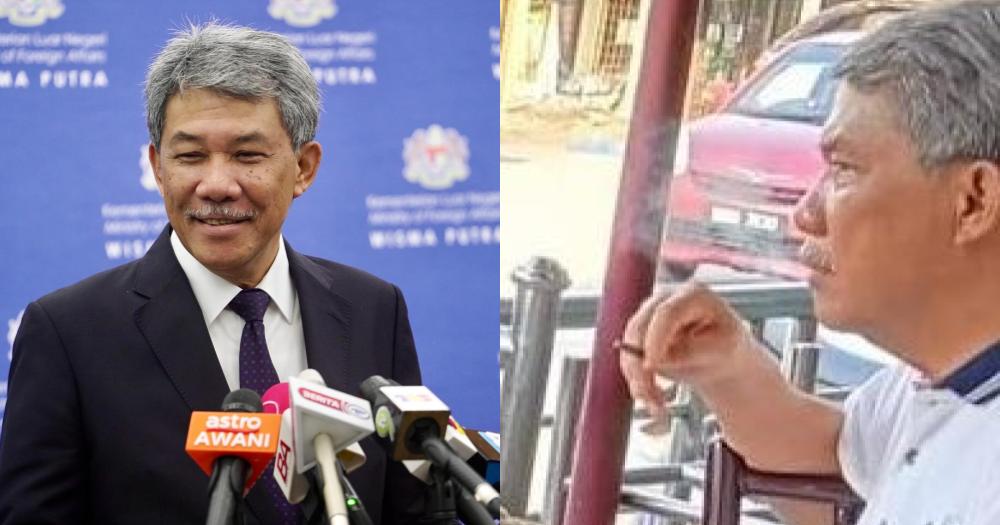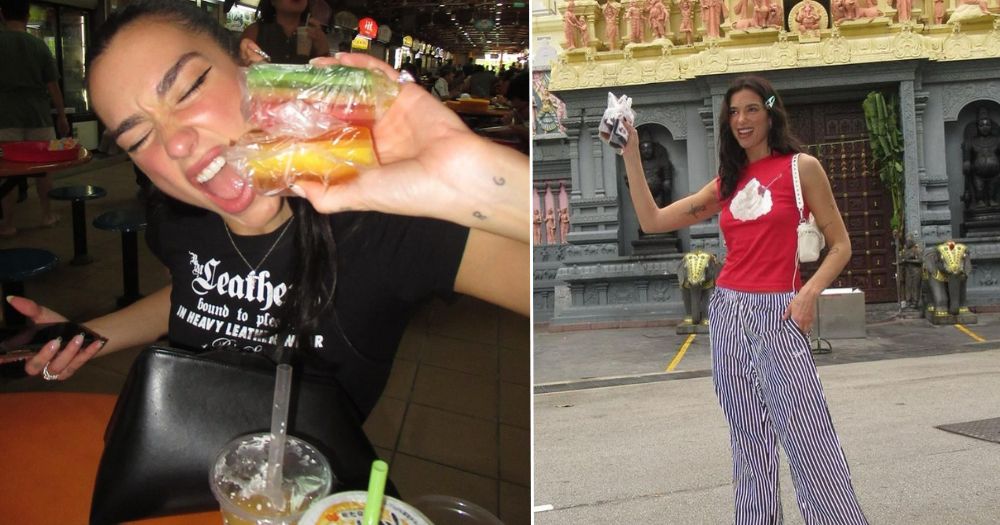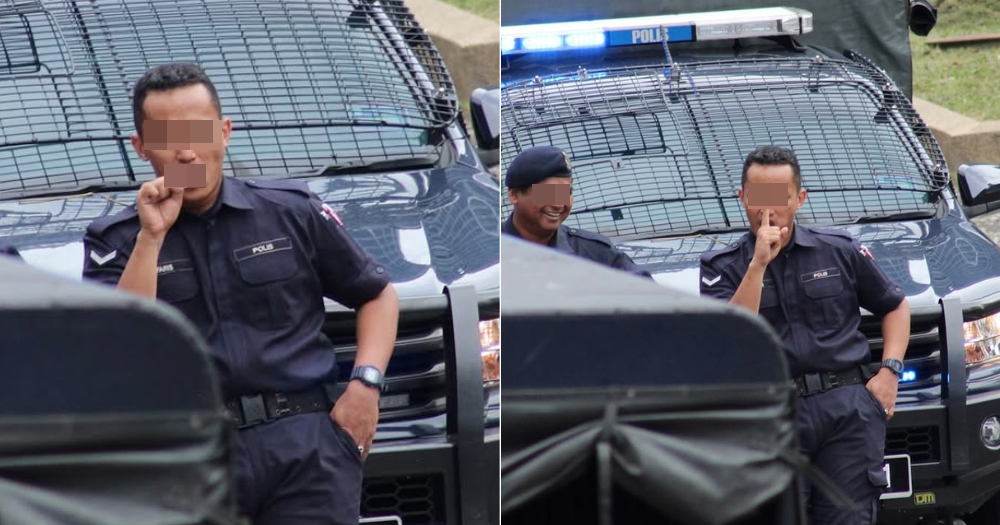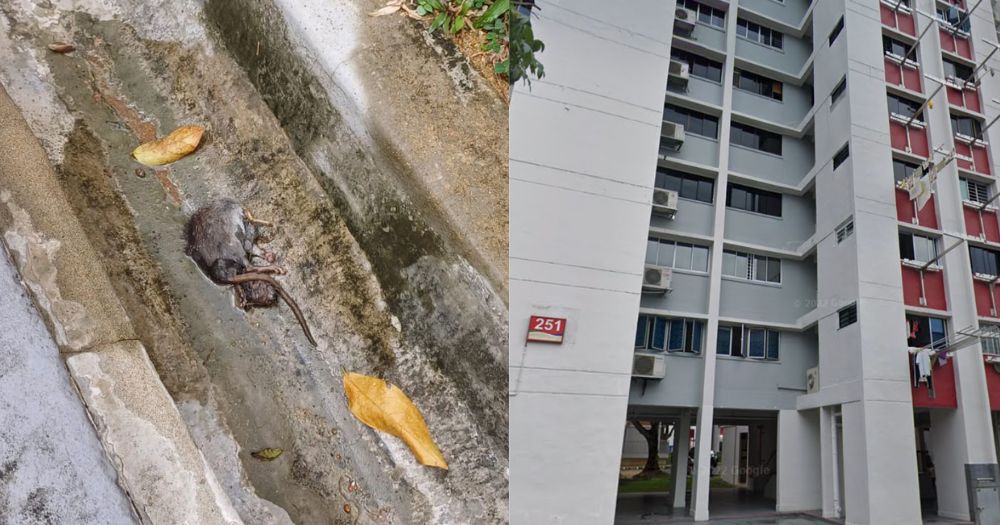Domestic worker in S'pore, 51, loses job & gets work permit cancelled following cancer diagnosis
Bhing Navato had also been providing for her mother and sister who was also diagnosed with cancer back in the Philippines.
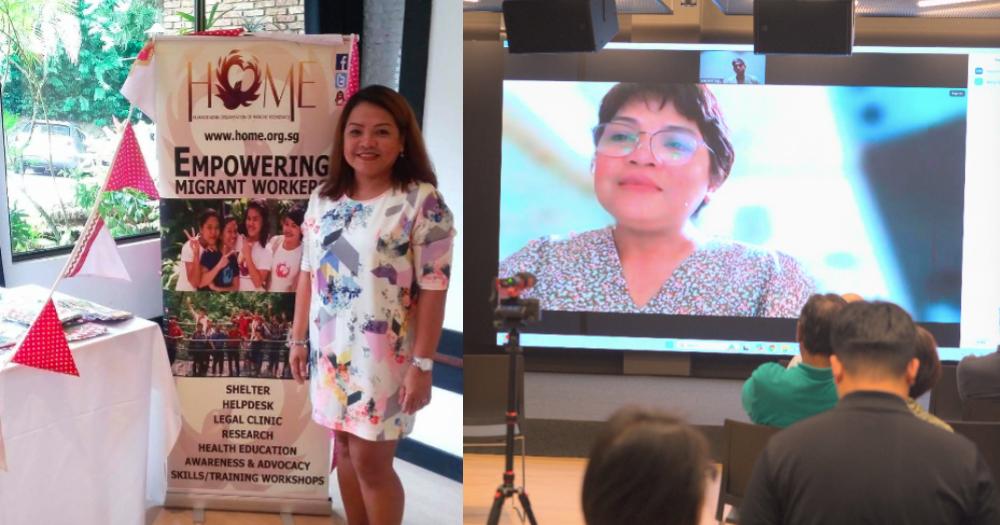
On Jun. 1, 2023, when Filipino domestic worker Bhing Navato, aged 50, woke up, she found herself bleeding heavily from her private area.
Speaking to Mothership, Navato said she thought nothing of it and decided she simply needed to rest before heading out on her day off to meet her friends.
However, the bleeding did not stop and she began feeling abdominal pain. Her vision also became blurry and she found herself unable to hear properly.
When she informed her friends that she would not be joining them, they decided to take her to Tan Tock Seng Hospital.
"I was really scared, I was really nervous because it was my first time to be brought (to) the hospital," Navato said.
She worried that she had hypertension but her doctor suspected a more threatening ailment; he sent her to KK Women's and Children's Hospital for further tests.
The next day, Navato was diagnosed with cervical cancer.
"The word 'cancer' is very scary..." she said, "It's the end of everything".
Crushed upon finding out she had been diagnosed with cancer
Navato had worked in Singapore for almost 29 years.
However, she only had a month's salary left in her pocket.
She had no savings as she would always send most of her salary back to the Philippines to support her family and provide for her children.
This included supporting her sister and mother who had been diagnosed with breast cancer a few months prior.
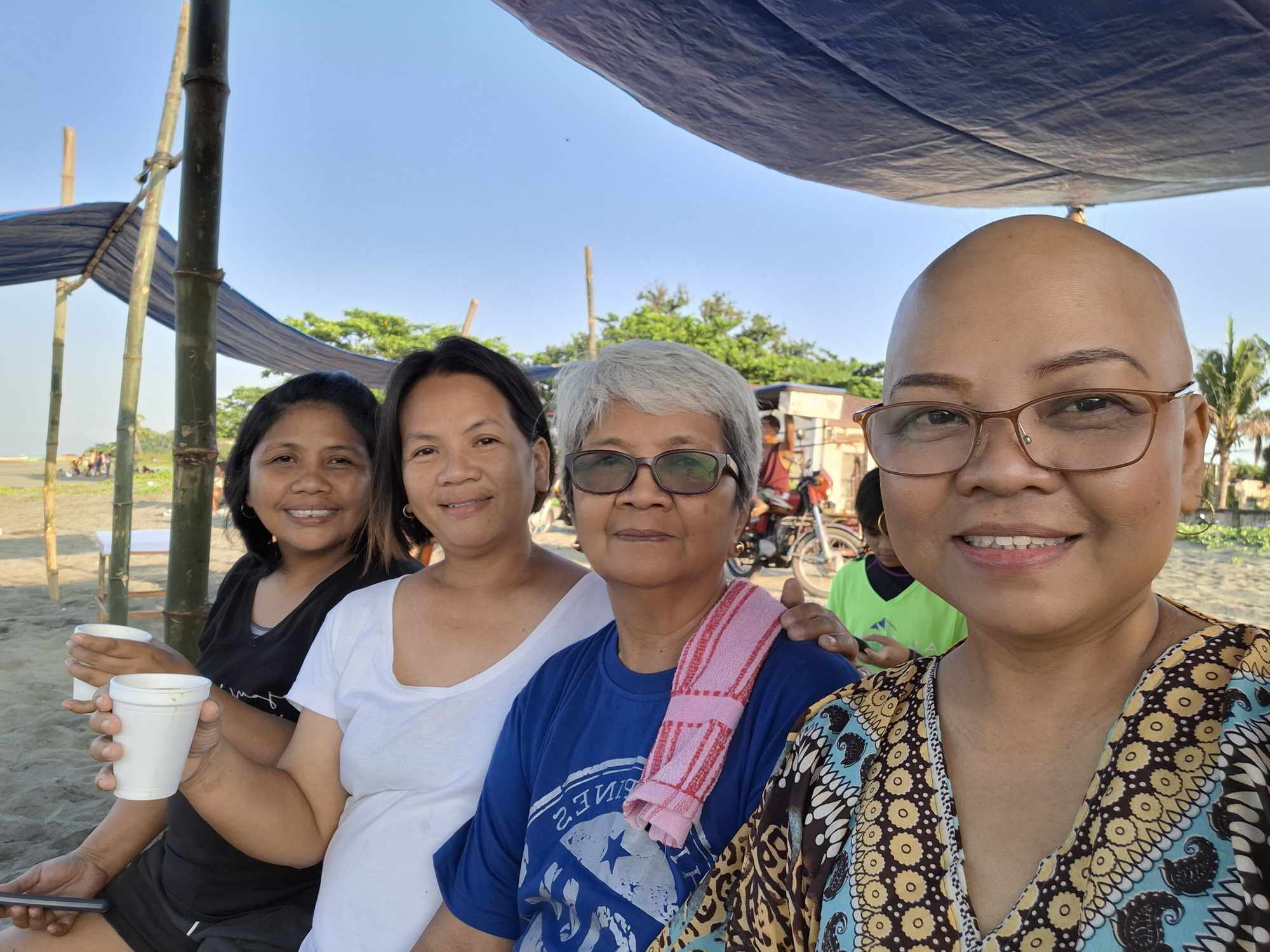 Navato (first from the right) with her mother and two sisters. Photo courtesy of Bhing Navato.
Navato (first from the right) with her mother and two sisters. Photo courtesy of Bhing Navato.
"I don't have anything. I was just starting to plan for my retirement (in 2024)," she said.
Work permit cancelled by employer without her prior knowledge
Navato said that her employers — a couple between the ages of 40 and 50 with a toddler — for whom she had worked for about a year, were shocked at the diagnosis.
They picked her up from KK Women's and Children's Hospital and made the initial payments for her hospitalisation bills, before later seeking reimbursement through the insurance mandated by the Ministry of Manpower (MOM).
Prior to Jul. 1, 2023, employers of domestic workers were required by MOM to buy medical insurance for their workers with an annual claim limit of at least S$15,000.
This has since been raised to S$60,000, with effect from Jul. 1, 2023.
Navato said that she did not have a close relationship with the couple and that they subsequently cancelled her work permit and bought her a flight back to the Philippines.
She remembered receiving the "cold shoulder" from the couple in her last few days in Singapore before returning home on Jun. 27, 2023 — less than a month after being diagnosed with cancer.
They did however donate S$500 to a donation drive that was eventually established to help Navato with the costs of cancer treatment.
"Cancer is an expensive illness in the Philippines"
After arriving back in the Philippines, Navato's anxieties focused on the steep cost of cancer treatment in her home country.
For example, chemotherapy and brachytherapy — a form of radiation therapy — cost about 100,000 Philippine pesos (S$2,300) each.
In Navato's case, she said she would not have been able to afford her chemotherapy and brachytherapy treatment, had a fundraiser not been set up by her friends in Singapore, including Vincent Ng, one of the founding members of A Good Space Cooperative, and former Nominated Member of Parliament (NMP) Anthea Ong.
"For me and my family, this help was a lifeline," she said.
That is not to say her worries subsided once she began her treatment in July 2023.
During the initial phase of her treatment, she was told that her cancer was aggressive.
On top of that, following multiple rounds of chemotherapy and brachytherapy, and until April 2024, she was informed that not only had she not recovered, her cancer had grown instead.
This was when the option of immunotherapy was suggested to her.
Yet the cost of such treatment was prohibitive at 120,000 Philippine pesos (S$2,700) per session.
She could only afford four sessions at most, instead of the years of the immunotherapy she was told she needed.
Cancer went into remission
Fortunately, a biopsy Navato underwent before her first session of immunotherapy came back with surprising results — she was negative for cancer.
A second biopsy confirmed the result; "only dead cells," Navato said.
It was also then that Navato realised she no longer felt easily tired or in pain on a daily basis.
For Navato, it was a highly emotional moment.
She had spent more than S$15,000 in total for her treatment.
This also included the amount she had to fork out on travelling from her city to Manila for medical appointments, and the cost of accommodation there.
When I asked Navato about her subsequent plans, she replied that while she would like to return to Singapore, it would simply be to visit her friends and to help other domestic workers.
She said:
"I worked for almost 29 years and I cannot just come back and die. That was my prayer.
I did not look after my kids. So I need to build this relationship again. Even though they have their own path. I still want to build a new relationship."
 Navato, second from left, with her children. Photo courtesy of Bhing Navato.
Navato, second from left, with her children. Photo courtesy of Bhing Navato.
The need for a fund to help migrant workers cover their medical expenses in the short term
Such an experience by Navato is why Ong and Ng were eventually inspired to help start up the Criticare Fund for Migrant Workers — to provide financial relief for migrant workers.
Speaking to Mothership on the day of the initiative's launch on Dec. 6, Ong noted that migrant workers do not have access to have subsidised medical care because of their status as foreigners.Hence, even though MOM has mandated a minimum medical insurance coverage of S$60,000 for migrant workers, this amount is "really not sufficient" to treat an individual who, for all intents and purposes, is counted as a private patient, Ong said.
Should the worker be diagnosed with late-stage cancer, the cost of treatment can range from S$100,000 to S$200,000.
The fund therefore has a target goal of S$410,500 so that it is able to provide financial relief to between 20 to 30 migrant workers who come down with critical illnesses, Ong said.
It will also reduce inequalities in crowdfunding and increase the chances of any worker in need receiving assistance, regardless of their popularity or connections.
The aim is to raise S$100,000 from public donations, S$250,000 from foundations and charities, and S$60,000 from corporations and SMEs.
Should migrant workers be in the same category as other foreigners when they access the public healthcare system?
When I ask Ong if there any long-term goals that the members spearheading the initiative are working towards, she replied:
"In the medium term, we hope that the minimum coverage mandated for (the) medical insurance policy to be taken by employers can be raised to a higher amount that is more aligned to the prevailing cost benchmarks of private hospitals, of public hospitals for private patients, which our migrant workers, though low-wage... are categorised under. That's a medium-term aspiration."
She also hopes that more migrant workers will be aware that they have such a policy which they can activate with their employers and they do not have to keep quiet if they are unwell.
"Because there is that mandatory requirement already in place for employers to have that coverage for them. So at the very least, they (migrant workers) can activate that to allow them access to up to S$60,000 (in medical insurance coverage)," she said.
In the long-term, more structural changes are needed, Ong added.
"One is to look at whether it's equitable to treat low-wage migrant workers in the same category when they access public health care system to treat their critical illnesses... in the same category as all other foreigners."
According to Ong, this could lead to scenarios where a migrant worker — who might be earning between S$1,000 to S$2,000 — is stuck with the same medical bills as those incurred by a foreign CEO of a large multinational corporation.
Eventually, Ong hopes that the Criticare Fund for Migrant Workers will be the first step towards building up something akin to a national MediFund equivalent for low-wage migrant works.
"If we can work towards some form of fund that's contributed by all stakeholders...the workers themselves, the employers, the public, the government, and the (government's contribution) could be from some of the fees that they collect from employers...if we can build a fund like this, then I think that would help to have a shared responsibility because the contributions will be from all parties concerned and not a single stakeholder."
She also made a call for Singaporeans to donate and support the current fund.
"Maybe instead of exchanging gifts, or in addition to that, you can also come together to do something meaningful for our migrant workers by contributing towards this fund in your own peer campaign," Ong said.
Stressing the importance of the fund in helping migrant workers for the moment, Navato said that currently, if a migrant worker falls, they do need help from others to get treatment.
"The salary that we receive at (the end of) the month, is not meant for, like, saving for our future illness. The salary that we get is for the family, and then the amount (that is left) to us, is the amount to spend when we go out.
We cannot afford to have cancer, that's why we're working."
Left photo via Criticare Fund for Migrant workers, right image by Mothership
MORE STORIES








